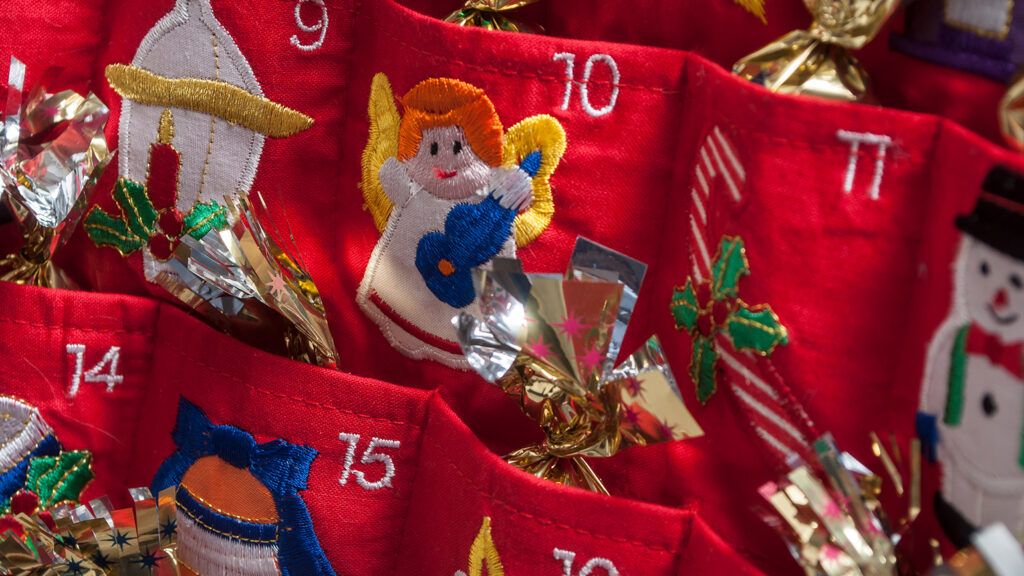Today, Advent calendars are among the most beloved of holiday traditions, but how much do you know about their origins? Here are 10 Advent calendar facts that will fill in the gaps.
1. They originated in Germany
In the 19th century, many devout Lutherans in Germany observed Advent by lighting a candle or making a chalk mark on a wall or door each day from December 1-24. Soon, that practice led to the hanging of a different religious image each day during Advent.
Join us on November 27, 2022, as we observe the 28 days of Advent.
2. Early Advent calendars were made of wood
The year 1851 saw the creation of the first wooden Advent calendar that was crafted by an artisan’s hand.
3. The first printed calendar was a clock
In the early 20th century, a Hamburg bookshop published what it called a Christmas Clock. It was, for all intents and purposes, the first printed Advent calendar.
4. Calendars were given as gifts
In 1904, a Stuttgart newspaper called Neues Tagblatt included an Advent calendar insert as a gift to its readers.
5. An Advent calendar printer got an idea from his mom
In 1908, a printer named Gerhard Lang produced a calendar that comprised small pictures that could be affixed to a cardboard calendar, one per day, throughout December. He got the idea from his mother, who would give him and his siblings one treat a day on during the weeks leading up to Christmas.
CHECK OUT: Our Editors’ Favorite Advent Candles and Holders
6. The windows weren’t added until later
Lang is also credited with the 1920s innovation of a calendar with small doors behind which could be found small pictures or Bible verses.
7. Advent calendars almost ended in WWII
During World War II, the Nazis banned calendars with pictures, which could have ended Advent calendars altogether, but following the war, a printer named Richard Sellmar convinced the U.S. officials who were governing Stuttgart at the time to allow him, despite a paper shortage, to print them again. His company, Sellmar-Verlag, continues to produce the calendars to this day. It’s the only publishing house in Germany devoted exclusively to the production of Advent calendars.
READ MORE: 5 Advent Prayers for Hope, Joy, Peace, and Love
8. President Eisenhower helped make them popular in the U.S.
The popularity of Advent calendars took off in the United States when Newsweek magazine published a photograph of then-President Dwight Eisenhower’s three grandchildren posing with one. The fact that small pieces of chocolate were by then included in many calendars just might have played a role, too.
9. Germany has the world’s largest Advent calendar
The town of Gengenbach in Baden-Württemberg, Germany, boasts what it calls the Das weltgrößte Adventskalenderhaus (the World’s Largest Advent Calendar House). Every December for more than 15 years, the city’s town hall is transformed into a two-story Advent calendar, with the structure’s 24 windows (two rows of 11, plus two more in the roof) each decorated with a Christmas tableau, revealed one per day throughout the season.
10. Germany also has the smallest Advent calendar
In 2007, a trio of German students, members of the University of Regensburg’s micro- and nanostructures group, created what surely remains the world’s smallest Advent calendar, a nano-scale etching that includes depictions of holiday imagery, including Santa Claus, a bell, a snowman and a snow-covered church. How small is it? It would take five million of the calendars to fill the surface area of a postage stamp.
READ MORE: 10 Interesting Advent Facts to Get You in the Holiday Spirit




